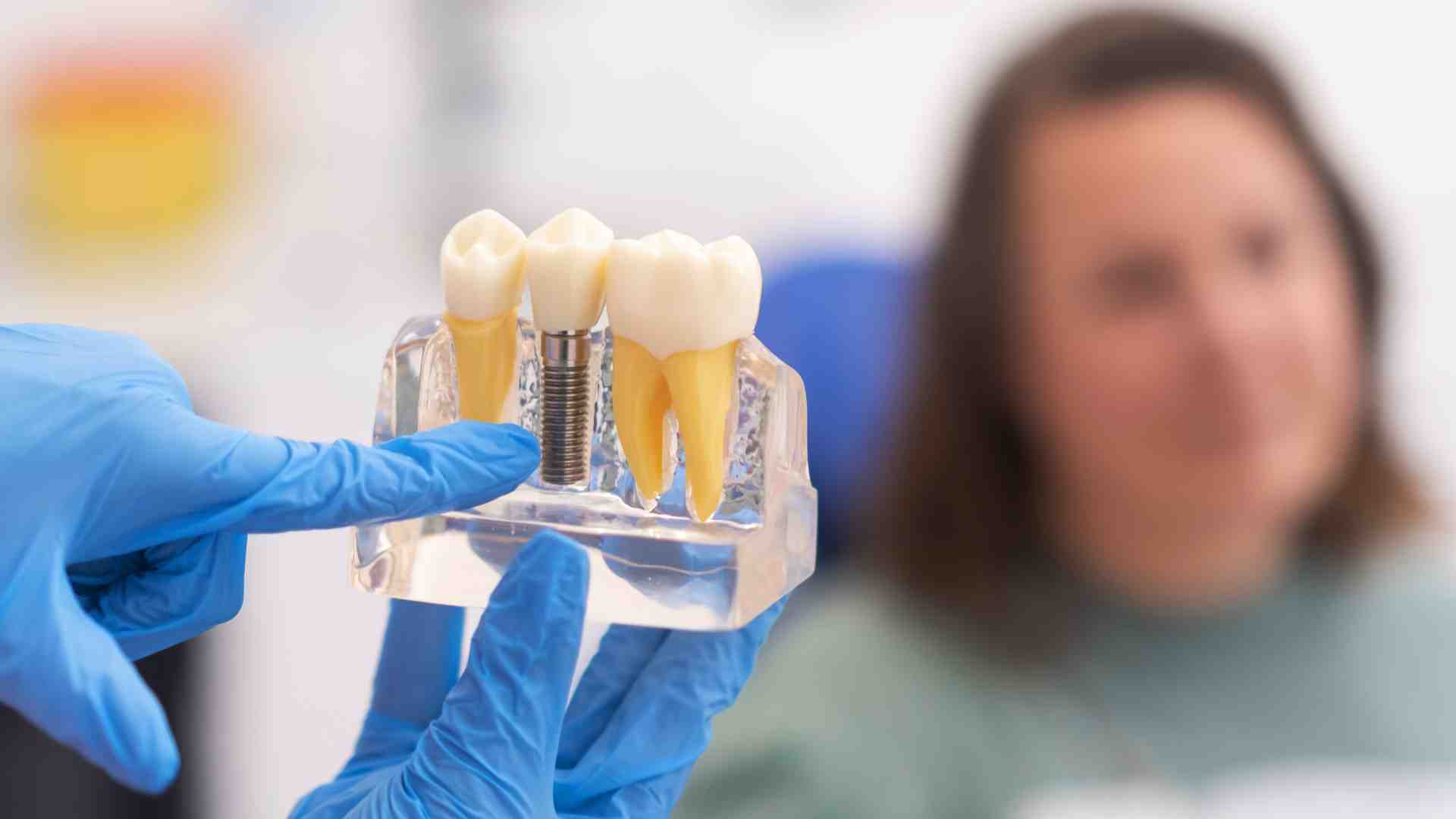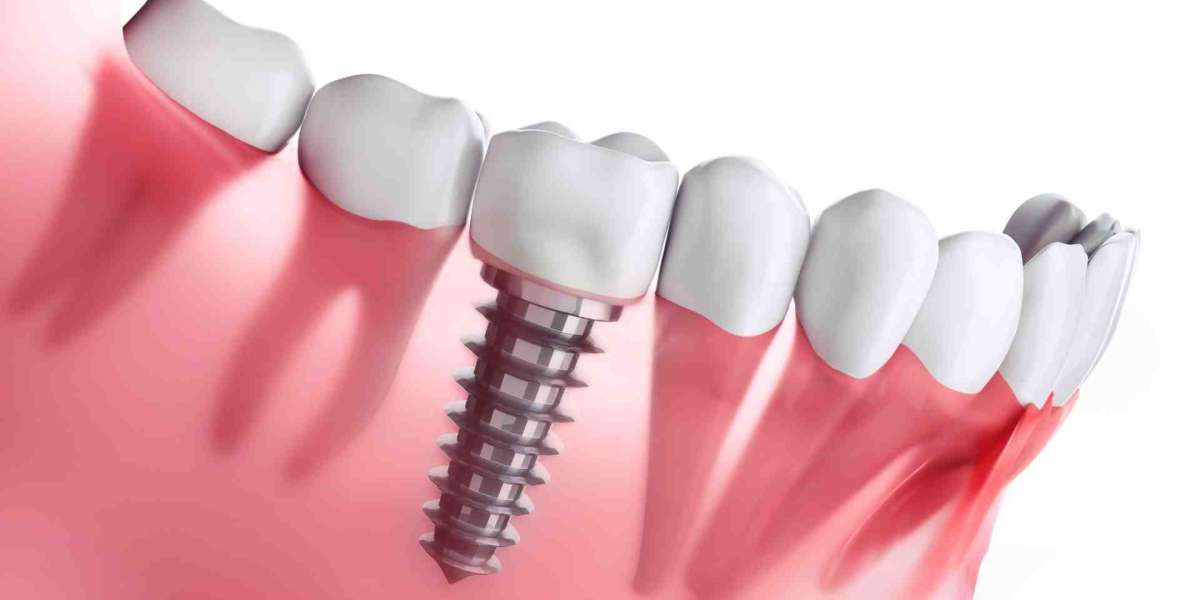Imagine being able to smile confidently again, eat your favourite foods without hesitation, and say goodbye to the inconvenience of dentures. The dental implant treatment provides a long-lasting, natural-looking, and natural-feeling replacement for lost teeth. If you've been curious about how dental implants work and whether they're right for you, you've come to the right place.
What Are Dental Implants?
Small titanium posts called dental implants act as substitute tooth roots. They are a strong base for dentures, crowns, and bridges surgically inserted into the mandible. The surgery aims to make your smile look natural and long-lasting while restoring functionality.
Why Consider Dental Implants?
For many, missing teeth can lead to difficulty chewing, speaking, or feeling comfortable in social settings. A dependable and lasting answer to these problems is dental implants. Implants differ from bridges or dentures in that they:
- Long-lasting: They can live a lifetime if given the proper care.
- Stable: They don't shift or move like traditional dentures.
- Natural: They look and feel like your own teeth.
The Steps of a Dental Implant Procedure

The dental implant procedure involves several stages, but don't let that intimidate you. Each step is carefully planned to ensure your comfort and the success of your new SMI. Let's break it down:
Initial Consultation
The process begins with a consultation with your dentist or oral surgeon. They will examine your oral health, obtain CT or X-rays, and discuss your medical background to ascertain your appropriateness.
Practical Tip: If you've been dealing with gum disease or bone loss, additional treatments such as bone grafting may be necessary to prepare your jaw for the implants.
Planning and Preparation
Once you're cleared for the procedure, your dental team will create a personalized treatment plan. This plan will outline the number of implants needed and the type of restoration that's best for you—whether it's a single crown or an entire arch of teeth.
Implant Placement Surgery
During this stage, the dentist surgically places the titanium implant into the jawbone. Don't worry; local anaesthesia or sedation ensures you won't feel pain. After the surgery, your bone will gradually fuse with the implant in osseointegration. This healing phase can take a few months.
Attachment of the Abutment
An abutment, a tiny connector, is affixed once the implant has been firmly incorporated into the jawbone. The replacement tooth will stay in place thanks to this.
Placement of the Crown
Finally, a custom-made crown, bridge, or denture is secured onto the abutment. Your dentist will ensure the restoration is the same size, shape, and colour as your natural teeth.
Real-Life Example: Sarah's Story
Sarah, a busy professional, lost a front tooth in an accident and struggled with her confidence. She opted for a dental implant, and her smile was as radiant as ever within months. Sarah often shares how the procedure restored her appearance and made dining out with friends enjoyable again. Her experience highlights how transformative this treatment can be.
How Painful Is the Procedure?
A lot of people are hesitant to have dental implants because they think they might hurt. T e reality? During and after the treatment, most patients experience just minor discomfort. Local anaesthesia and modern surgical techniques make the experience surprisingly smooth. Post-surgery, over-the-counter pain relievers and following your dentist's aftercare instructions can help you recover quickly.
Are You a Candidate for Dental Implants?
Not everyone is immediately eligible for dental implants, but most people can qualify with proper preparation. Ideal candidates:
- Have healthy gums.
- Possess sufficient bone density in their jaw.
- Maintain good oral hygiene.
If you have underlying conditions like diabetes or are a smoker, it's essential to discuss these with your dentist to minimize risks.
The Cost of Dental Implants
The number of implants required, the procedure's intricacy, and your location are some variables that affect the cost. While implants may seem expensive upfront, their durability and benefits make them a cost-effective choice in the long run.
Insider Tip: Some clinics, like those in regions known for advanced dental care, may offer competitive pricing without compromising quality.
Recovery and Aftercare Tips
Healing after a dental implant procedure requires some patience, but following these tips can help:
- Stick to soft foods during the initial recovery period.
- Avoid smoking, as it can hinder healing.
- Brush and floss regularly to maintain implant health.
- Visit your dentist for routine check-ups.
Why Implants Are a Game-Changer

Dental implants aren't just about replacing missing teeth; they're about reclaiming your confidence, improving your health, and enhancing your quality of life. Whether you've lost one tooth or several, this procedure provides a durable solution that lets you enjoy life to the fullest.
The dental implant procedure is a journey worth considering if you want a long-term fix for missing teeth. It's not just about aesthetics—it's about improving your overall well-being. From planning to the final restoration, the process is designed with your comfort and satisfaction in mind.One such destination is Dubai, where advanced facilities and expert care have earned global recognition.
FAQs
1. How long does a dental implant procedure take?
The entire process, including healing, can take 3-9 months, depending on individual cases.
2. Are dental implants permanent?
If well cared for, dental implants can indeed last a lifetime.
3. Is the procedure painful?
Most patients report minimal discomfort, as local anaesthesia is used during the surgery.
4. What is the cost of dental implants?
Costs vary, but many clinics offer financing options to make the procedure more affordable.
5. Can anyone get dental implants?
Most people can, but a healthy jawbone and gums are necessary for success.











